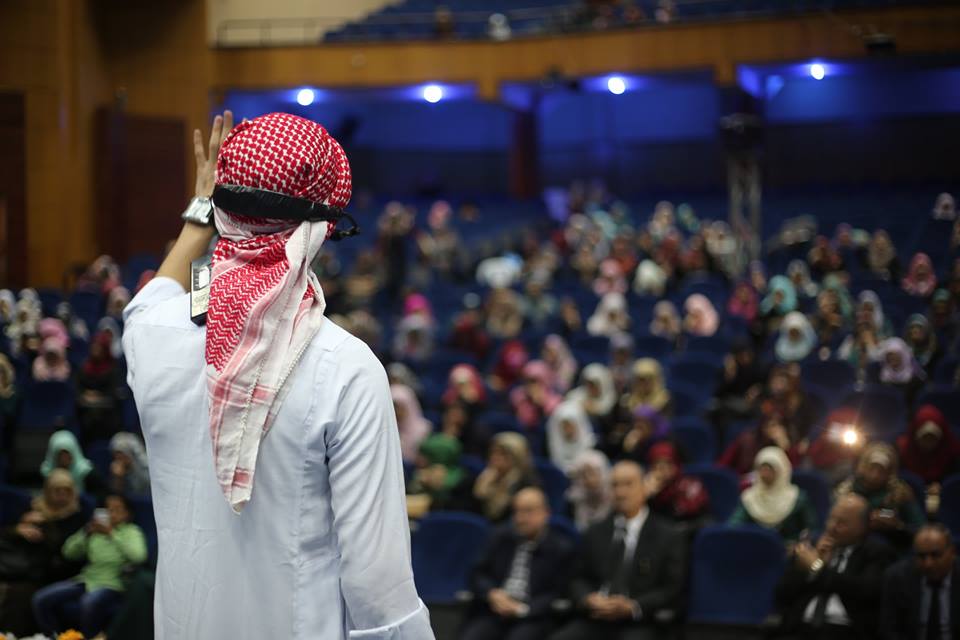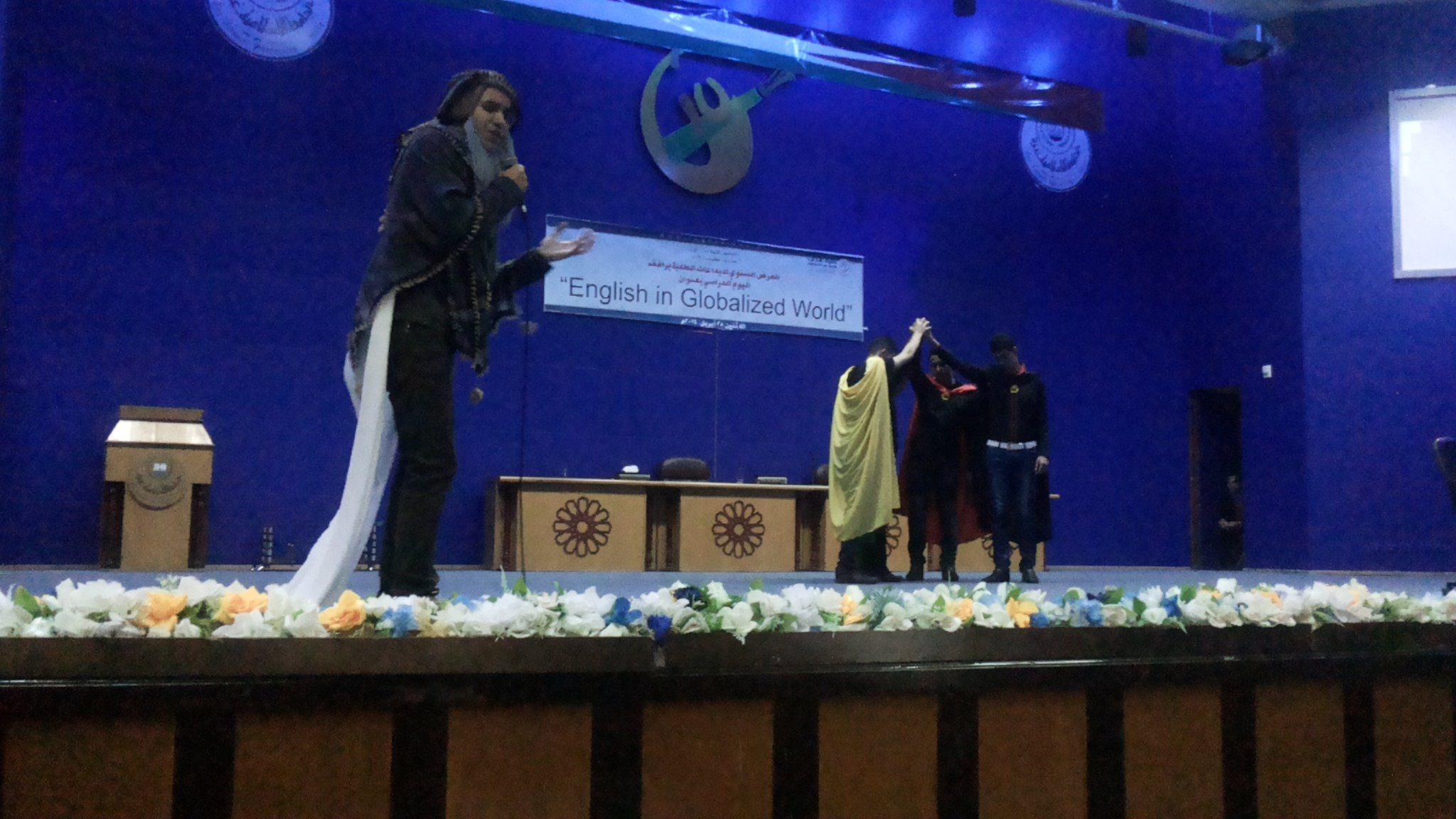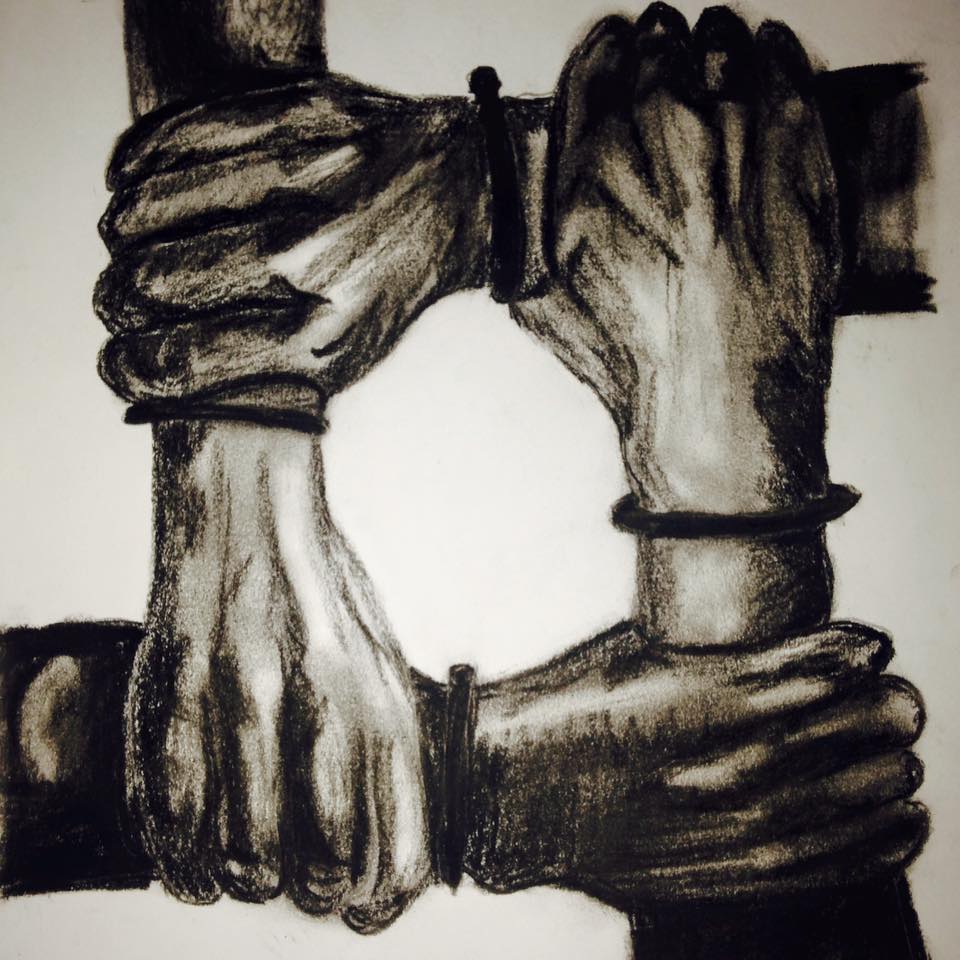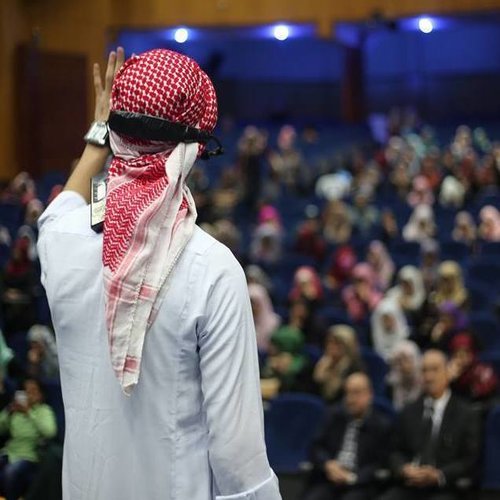
The actor playing the king taps the stage with his scepter, his white beard touching his chest. He is United Palestine. My three acting partners and I are the four musketeers, Hamas, Fatah, Islamic Jihad and PFLP (Palestinian Front for the Liberation of Palestine). We wear green, yellow, black and red robes, the colors of the four factions, respectively. I play Islamic Jihad. My black robe flows behind me as I summon my courage and walk onto the stage with the three musketeers, discussing how things are getting worse by the day.
Acting is my passion. I am 20 years old and have performed in two sketches. We try to reflect the circumstances of our lives in Gaza. One of the plays is about the loss of land.. This particular sketch, written by one of my friends, is about the political division in Palestinian society. It conveys the message that we must unite, because divided we’ll be doomed.
I hold the mic and gaze nervously at the audience in the IUG (Islamic University of Gaza) auditorium. As the actor representing Islamic Jihad, I speak in a low voice to express the weakness of my party when I am divided from the others. I don’t worry about my acting; what I want is for the audience to feel the pain of division and to come to the same conclusion at the end: that united we cannot be defeated. I feel how eager the audience is to see what happens next.
It’s not easy being an actor in Gaza. We don’t have formal acting classes or theaters—just one class in the English department and an annual talent show, like this one, in which you can perform a play as long as the subject is related to Palestine in some way. There is no money to be made. Many people here do not see acting as a respectable profession, but for me—because Gaza is such a difficult place—expressing my gloom and sadness through acting brings me comfort. Even if it’s merely within the university campus, I am determined to be the best actor I can be.
The Hamas actor promises: "Brothers, my love for you will be no more when the sun no longer shines, or my soul meets its lord in the sky… but for as long as blood runs in my veins, I will have your back.” We put our hands together in promise of long-lasting unity.
The audience applauds.
But no… it’s too soon… a wicked laughter is heard and a demon in a blue robe materializes from the corner of the stage, pushing a chair between us. This is Israel.

"Oh, that chair. That cursed chair, appearing from nowhere. We forgot our oath, we forgot our promise," says the old king, mournfully.
The four of us musketeers scatter across the stage. After a heated argument, the red-robed PFLP and I go our separate ways. The Fatah and Hamas actors fight over power.
To deepen the division, the blue demon brings a second chair – for Fatah.
The audience cries out NO!
The king squeezes his heart in pain. He urges us to have faith and unite. But in his grief the king falls to the ground, unconscious.
Since we don’t have drama schools in Gaza, my acting mates and I coach each other. We read books on acting, we watch films on TV, we use our imagination. We want to be the voice of the voiceless, to express the suffering of Palestinians in Gaza. I am lucky to have friends who share the same burning desire for acting.
"At the very beginning, my father disapproved of my acting, but after seeing me perform he has been supportive,” says Yasmine, a friend who also likes drama.
I feel the dramatic arts can show Gaza to the world in a more authentic light than how we are portrayed in mainstream Western media. At the same time, theater brings joy to the otherwise gloomy atmosphere here.
The king – Palestine – is dead. We, the four musketeers, decide:
"Brothers, together we must stand for our king, for our kingdom to be whole. Together we stand! But divided we cannot cheat the inevitable death."
We chase the blue demon off his chair and off the stage.
Together we walk toward a candlestick representing Israel, to stop it from burning.
We beg the king to come back to life. The king clears his throat and coughs. We help him to his feet; we hug him and he hugs us.
On the stage, unity has been achieved.
The audience members are up on their feet. What a wonderful feeling it is to receive a standing ovation. Our work has paid off. In this moment I feel something new, something I have not been accustomed to: I have the courage to address an audience and the faith that a simple sketch can create hope for the future.

Mentor: Elana Golden










